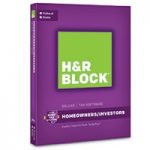
Here’s my monthly roundup of the best interest rates on cash for November 2019, roughly sorted from shortest to longest maturities. There was another Fed rate cut last week. I track these rates because I keep a full 12 months of expenses as a cash cushion and also invest in longer-term CDs (often at lesser-known credit unions) when they yield more than bonds. Check out my Ultimate Rate-Chaser Calculator to get an idea of how much extra interest you’d earn if you are moving money between accounts. Rates listed are available to everyone nationwide. Rates checked as of 11/5/19.
High-yield savings accounts
While the huge megabanks like to get away with 0.01% APY, it’s easy to open a new “piggy-back” savings account and simply move some funds over from your existing checking account. The interest rates on savings accounts can drop at any time, so I include banks with a history of competitive rates. Some banks will bait you with a temporary top rate and then lower the rates in the hopes that you are too lazy to leave.
- First Foundation Bank is at 2.40% APY ($1,000 minimum to get higher rate). Brio Direct is at 2.30% APY ($25 minimum to open). Redneck Bank is at 2.25% APY on up to $50,000 (0.50% APY above that). There are several other established high-yield savings accounts at around 2% APY.
Short-term guaranteed rates (1 year and under)
A common question is what to do with a big pile of cash that you’re waiting to deploy shortly (just sold your house, just sold your business, legal settlement, inheritance). My usual advice is to keep things simple and take your time. If not a savings account, then put it in a flexible short-term CD under the FDIC limits until you have a plan.
- No Penalty CDs offer a fixed interest rate that can never go down, but you can still take out your money (once) without any fees if you want to use it elsewhere. My eBanc has a 11-month No Penalty CD at 2.15% APY with a $10,000 minimum deposit. Marcus Bank has a 7-month No Penalty CD at 2.00% APY with a $500 minimum deposit. Ally Bank has a 11-month No Penalty CD at 1.90% APY with a $25,000 minimum deposit. CIT Bank has a 11-month No Penalty CD at 1.85% APY with a $1,000 minimum deposit. You may wish to open multiple CDs in smaller increments for more flexibility.
- Total Direct Bank has a 12-month CD at 2.36% APY ($25,000 minimum) with an early withdrawal penalty of 3 months of interest.
Money market mutual funds + Ultra-short bond ETFs
If you like to keep cash in a brokerage account, beware that many brokers pay out very little interest on their default cash sweep funds (and keep the difference for themselves). The following money market and ultra-short bond funds are not FDIC-insured, but may be a good option if you have idle cash and cheap/free commissions.
- Vanguard Prime Money Market Fund currently pays an 1.85% SEC yield. The default sweep option is the Vanguard Federal Money Market Fund, which has an SEC yield of 1.76%. You can manually move the money over to Prime if you meet the $3,000 minimum investment.
- Vanguard Ultra-Short-Term Bond Fund currently pays 2.09% SEC yield ($3,000 min) and 2.19% SEC Yield ($50,000 min). The average duration is ~1 year, so there is more interest rate risk.
- The PIMCO Enhanced Short Maturity Active Bond ETF (MINT) has a 2.19% SEC yield and the iShares Short Maturity Bond ETF (NEAR) has a 2.30% SEC yield while holding a portfolio of investment-grade bonds with an average duration of ~6 months.
Treasury Bills and Ultra-short Treasury ETFs
Another option is to buy individual Treasury bills which come in a variety of maturities from 4-weeks to 52-weeks. You can also invest in ETFs that hold a rotating basket of short-term Treasury Bills for you, while charging a small management fee for doing so. T-bill interest is exempt from state and local income taxes.
- You can build your own T-Bill ladder at TreasuryDirect.gov or via a brokerage account with a bond desk like Vanguard and Fidelity. Here are the current Treasury Bill rates. As of 11/5/19, a 4-week T-Bill had the equivalent of 1.56% annualized interest and a 52-week T-Bill had the equivalent of 1.62% annualized interest.
- The Goldman Sachs Access Treasury 0-1 Year ETF (GBIL) has a 1.83% SEC yield and the SPDR Bloomberg Barclays 1-3 Month T-Bill ETF (BIL) has a 1.66% SEC yield. GBIL appears to have a slightly longer average maturity than BIL.
US Savings Bonds
Series I Savings Bonds offer rates that are linked to inflation and backed by the US government. You must hold them for at least a year. There are annual purchase limits. If you redeem them within 5 years there is a penalty of the last 3 months of interest.
- “I Bonds” bought between November 2019 and April 2020 will earn a 2.22% rate for the first six months. The rate of the subsequent 6-month period will be based on inflation again. More info here.
- In mid-April 2020, the CPI will be announced and you will have a short period where you will have a very close estimate of the rate for the next 12 months. I will have another post up at that time.
Prepaid Cards with Attached Savings Accounts
A small subset of prepaid debit cards have an “attached” FDIC-insured savings account with exceptionally high interest rates. The negatives are that balances are capped, and there are many fees that you must be careful to avoid (lest they eat up your interest). Some folks don’t mind the extra work and attention required, while others do. There is a long list of previous offers that have already disappeared with little notice. I don’t personally recommend nor use any of these anymore.
- The only notable card left in this category is Mango Money at 6% APY on up to $2,500, but there are many hoops to jump through. Requirements include $1,500+ in “signature” purchases and a minimum balance of $25.00 at the end of the month.
Rewards checking accounts
These unique checking accounts pay above-average interest rates, but with unique risks. You have to jump through certain hoops, and if you make a mistake you won’t earn any interest for that month. Some folks don’t mind the extra work and attention required, while others do. Rates can also drop to near-zero quickly, leaving a “bait-and-switch” feeling. I don’t use any of these anymore, but the Orion offer is worth consideration.
- Consumers Credit Union Free Rewards Checking (my review) has up to 5.09% APY on balances up to $10,000 if you meet make $500+ in ACH deposits, 12 debit card “signature” purchases, and spend $1,000 on their credit card each month. Orion FCU Premium Checking (my review)has 4.00% APY on balances up to $30,000 if you meet make $500+ in direct deposits and 8 debit card “signature” purchases each month. Find a locally-restricted rewards checking account at DepositAccounts.
- If you’re looking for a high-interest checking account without debit card transaction requirements, the rate won’t nearly as high, but take a look at MemoryBank at 0.90% APY.
Certificates of deposit (greater than 1 year)
CDs offer higher rates, but come with an early withdrawal penalty. By finding a bank CD with a reasonable early withdrawal penalty, you can enjoy higher rates but maintain access in a true emergency. Alternatively, consider building a CD ladder of different maturity lengths (ex. 1/2/3/4/5-years) such that you have access to part of the ladder each year, but your blended interest rate is higher than a savings account. When one CD matures, use that money to buy another 5-year CD to keep the ladder going. Some CDs also offer “add-ons” where you can deposit more funds if rates drop.
- You could build a CD ladder at Pennsylvania State Employees Credit Union (PSECU) at 3.00% APY for 5-year, 2.75% APY for 4-year, 3.25% APY for 3-year, 3.00% APY for 2-year, and 1.95% APY for 1-year. Early withdrawal penalty: Up to 2-year CD is 90 days of interest. 3 to 5 year CD is 180 days of interest. Some of these are limited-time specials. Anyone can join this credit union via partner organization ($10 one-time fee).
- You could also build a CD ladder at current rates of First National Bank of America at 2.55% APY for 5-year, 2.50% APY for 4-year, 2.40% APY for 3-year, 2.37% APY for 2-year, and 2.35% APY for 1-year.
- You can buy certificates of deposit via the bond desks of Vanguard and Fidelity. You may need an account to see the rates. These “brokered CDs” offer FDIC insurance and easy laddering, but they don’t come with predictable early withdrawal penalties. The rates are not competitive right now. Watch out for higher rates from callable CDs listed by Fidelity.
Longer-term Instruments
I’d use these with caution due to increased interest rate risk, but I still track them to see the rest of the current yield curve.
- Willing to lock up your money for 10+ years? You can buy long-term certificates of deposit via the bond desks of Vanguard and Fidelity. These “brokered CDs” offer FDIC insurance, but they don’t come with predictable early withdrawal penalties. As of this writing, I am seeing no inventory on 7-year and 10-year CDs. Watch out for higher rates from callable CDs from Fidelity.
- How about two decades? Series EE Savings Bonds are not indexed to inflation, but they have a unique guarantee that the value will double in value in 20 years, which equals a guaranteed return of 3.5% a year. However, if you don’t hold for that long, you’ll be stuck with the normal rate which is quite low (currently a sad 0.10% rate). I view this as a huge early withdrawal penalty. You could also view it as a hedge against prolonged deflation, but only if you can hold on for 20 years. As of 10/2/19, the 20-year Treasury Bond rate was 1.90%.
All rates were checked as of 11/5/19.
“The editorial content here is not provided by any of the companies mentioned, and has not been reviewed, approved or otherwise endorsed by any of these entities. Opinions expressed here are the author’s alone. This email may contain links through which we are compensated when you click on or are approved for offers.”
Best Interest Rates on Cash – November 2019 from My Money Blog.
Copyright © 2019 MyMoneyBlog.com. All Rights Reserved. Do not re-syndicate without permission.
Read More: Best Interest Rates on Cash – November 2019






